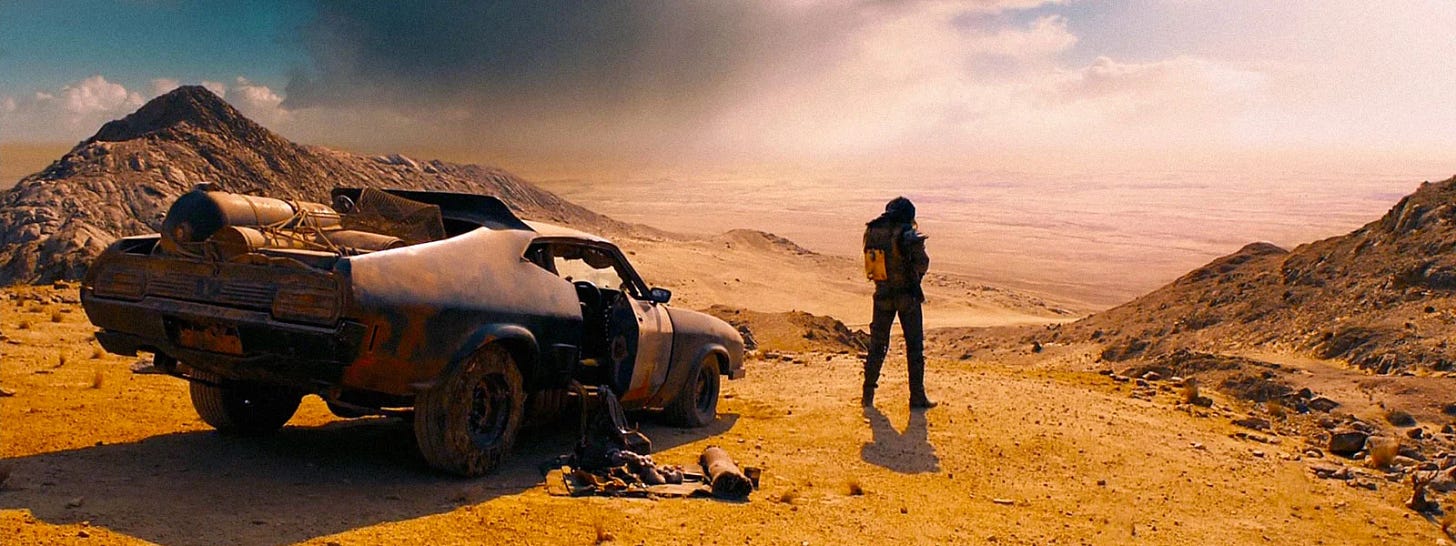Trust your audience, and you’ll be rewarded
Even for those of us who don’t generally find the crazy, post-apocalyptic, freakshow genre of filmmaking appealing, Mad Max is a masterclass in visual storytelling.
Whether it is fiction writing, moviemaking, copywriting, marketing, or branding, one of the biggest mistakes often made by writers and creatives is the need to include absolutely everything they want their audience to know in their final draft.
Mark Twain got it quite right when he argued that what is left out of a story often matters more than what is l…
Keep reading with a 7-day free trial
Subscribe to Creative Discourse to keep reading this post and get 7 days of free access to the full post archives.



